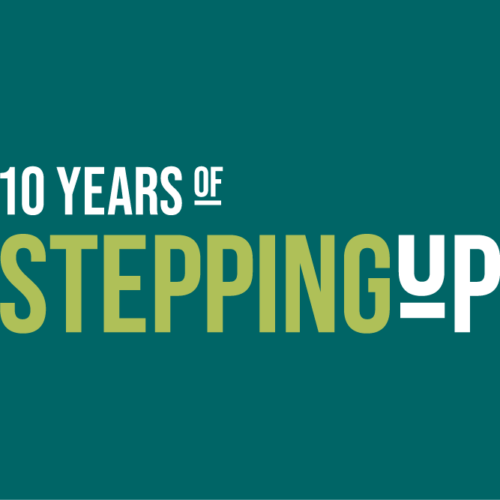On April 18–19, the National Stepping Up Summit brought together teams of criminal justice and behavioral health professionals from U.S. communities of all sizes as part of an initiative to address the mental health crisis in our nation’s jails. Among the federal and elected officials in attendance were Valerie Jarrett, senior advisor to President Barack Obama; Deputy Attorney General Sally Yates; U.S. Senator John Cornyn (R-TX); and U.S. Representative Bobby Scott (D-VA).
The first-of-its kind summit, which convened jail administrators, law enforcement officials, county elected officials, psychiatrists, and other stakeholders from 50 jurisdictions across the country, was designed to give attendees a clear understanding of what constitutes a comprehensive, system-level plan to reduce the number of people with mental illnesses in jail.
The 50 jurisdictions selected to attend consisted of a cross-section of urban, suburban, and rural counties representing 37 states.
At the summit, county teams took stock of work already underway in their counties and charted a path forward. To that end, they considered six questions to guide working sessions over course of the two-day event.
Stepping Up, an initiative designed to rally national, state and local leaders around the goal of reducing the number of people with mental illnesses in jail, launched in May 2015 as a partnership between The Council of State Governments Justice Center, The National Association of Counties, and The American Psychiatric Association Foundation.
View Livestream Videos
The sharp rise in school shootings over the past 25 years has led school officials across the U.S.…
Read MoreA three-digit crisis line, 988, launched two years ago to supplement—not necessarily replace—911. Calling 988 simplifies access to…
Read MoreIt would hardly be controversial to expect an ambulance to arrive if someone called 911 for a physical…
Read More Taking the HEAT Out of Campus Crises: A Proactive Approach to College Safety
Taking the HEAT Out of Campus Crises: A Proactive Approach to College Safety
The sharp rise in school shootings over the past 25 years has led school officials across the U.S. to take a closer look at ways to keep students safe. For Chaffey College in Rancho Cucamonga, California, a tragic incident at a nearby university hit close to home and spurred campus leaders to revisit their own school’s threat assessments and crisis responses.
Read More From 911 to 988: Salt Lake City’s Innovative Dispatch Diversion Program Gives More Crisis Options
From 911 to 988: Salt Lake City’s Innovative Dispatch Diversion Program Gives More Crisis Options
A three-digit crisis line, 988, launched two years ago to supplement—not necessarily replace—911. Calling 988 simplifies access to services when people are seeking help for themselves or loved ones with suicidal thoughts, behavioral health concerns, or substance use-related crises.
Read More Matching Care to Need: 5 Facts on How to Improve Behavioral Health Crisis Response
Matching Care to Need: 5 Facts on How to Improve Behavioral Health Crisis Response
It would hardly be controversial to expect an ambulance to arrive if someone called 911 for a physical health emergency. And yet, for years, the default responders for a behavioral health emergency have been law enforcement officers, not behavioral health professionals.
Read More The 10-Year Impact—and Future—of Stepping Up: Facing the Behavioral Health Crisis in Jails and Communities with Real Solutions
The 10-Year Impact—and Future—of Stepping Up: Facing the Behavioral Health Crisis in Jails and Communities with Real Solutions
As the Stepping Up initiative marks its 10th year, America’s justice and behavioral health systems are facing a shared crisis: how to meet the behavioral health needs of people cycling through jails.
Read More









